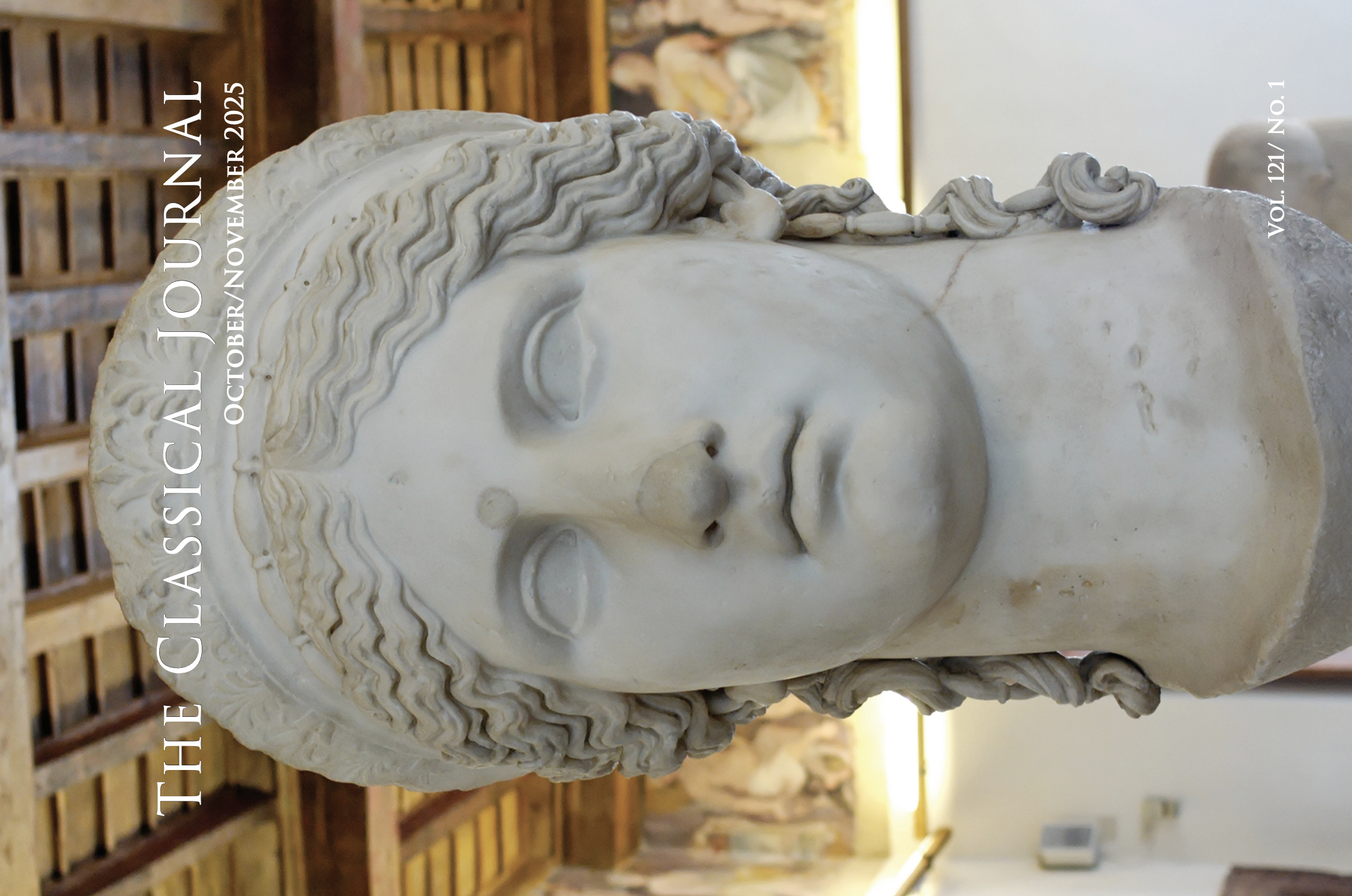The following articles are contained in CJ
110.3
Abstracts of Articles
PENELOPE’S LION, ΘΥΜΟΛÉΩΝ HUSBAND, AND ΘΥΜÓΣ-DESTROYING PAIN
This article offers a reading of Penelope’s lion-comparison (Odyssey 4.791–3), which has not hitherto received a sustained treatment despite its importance to Penelope’s characterization. Framed by her description of Odysseus as θυμολέων, Penelope’s comparison to a terrified lion graphically represents how the θυμός-destroying pain she suffers on hearing about Telemachus’ departure and the suitors’ assassination plans disrupts in her the qualities that define her character and underpin her “like-mindedness” with Odysseus. Because these particular qualities explicitly distinguish Penelope from Clytemnestra and Helen, their disruption leaves her future behavior in doubt during Odysseus’ adventures over the next twelve books, perhaps longer.
EUMAEUS RUSTLES UP DINNER
Eumaeus’ hospitality in Odyssey 14, culminating in the sacrifice of a fatted boar, exhibits features of a post-raid feast. Inspired by the beggar’s “Cretan tale,” which conflates the themes of raiding and hospitality, the swineherd augments the rustic reception of his guest with an impromptu raid on the very livestock which the marauding suitors have stolen from his master. While the chine compensates Odysseus as the aggrieved victim of robbers, the portion honoring Hermes recognizes the Olympian founder of the animal-raid which, when executed with caution and celebrated with moderation, remains a legitimate heroic enterprise.
TO CHASE A FLYING BIRD: AESCHYLUS, AGAMEMNON 393–5
Agamemnon 393–5, about the chasing of a bird, has been traditionally interpreted with close reference to Paris. This article re–examines the relevance of the proverbial phrase of 394 to its context by looking into its possible origin and its relationship with the adjoining participial clause in 395. The reading offered here rests on the assumption that the gnomic character of the passage precludes secure identification with a single character in the play. So too, a reading of the participle θείς as denoting past action restricts the wide range of connotations of the passage, which surface by interpreting θείς as a coincident participle.
GERMANICUS, NERO AND THE INCOGNITO KING IN TACITUS’ ANNALS 2.13 AND 13.25
This paper examines Annals 2.13 and 13.25 in light of folk narratives about the “incognito king.” The Germanicus scene of 2.13 is modeled upon a widely attested narrative structure, in which a king assumes a disguise to test and ensure the morality of his subjects. The structure of the narrative as it appears in the Annals is modified from its normal rubric to emphasize the uprightness of Germanicus and his troops. The Nero episode of 13.25 also features an incognito king, but with contrasting results: in that instance, the disguised king actively degrades the morality of his subjects.
LITERARY QUOTATION AS LITERARY PERFORMANCE IN SUETONIUS
Most acts of literary quotation in Suetonius are ironical reflections by emperor-characters on the burdens of imperial rule, deployed at transitional moments in the biographies. Consideration of literary performance traditions in Suetonius’ society, from the classroom to the recitatio to the acroamata at dinner parties, allows us to understand these transitional quotations as moments in which Suetonius’ listener is invited to sympathize with the emperor-character as a fellow enthusiast for literature. The biography of Nero reverses this scheme, as Nero’s quotations bathetically distance him from the listener.
AMMIANUS, TRADITIONS OF SATIRE AND THE ETERNITY OF ROME
The fourth-century historian Ammianus Marcellinus famously attacks the inhabitants of Rome in two satirical “digressions,” which have often been read as autobiographical statements of Ammianus’ anger against his fellow inhabitants of Rome. This article argues, however, that Ammianus consciously adopts a light-hearted satirical persona, whose indignatio owes more to the traditions of Roman satire than personal experience. Furthermore, the insertion of these satirical passages is a radical response to the contemporary reawakening of interest in satire, particularly by Christian authors, in Late Antiquity and a statement of the Res Gestae’s place in a longer literary tradition.


